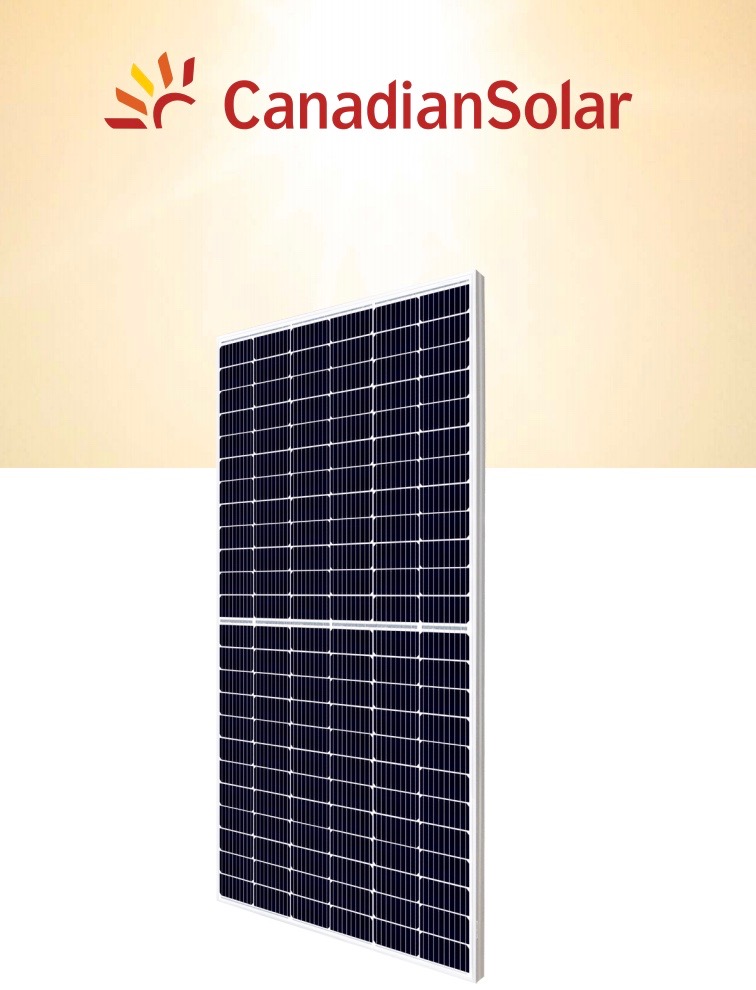Chinese-Canadian PV heavyweight Canadian Solar announced the launch of the HiKu Monocrystalline module in the Australian market yesterday. The HiKu Mono boasts of 450 W output, perhaps bettered only by fellow Chinese panel maker Trina Solar’s recent bifacial releases, the Duomax V and the Tallmax V, each reported to have a power output of 500 W.
Of course, a 450 W Mono is nothing to be sniffed at, and with a module conversion efficiency of up to 20.37%, the HiKu Mono promises to be one of the most generative modules on the Australian market.
“The HiKu Mono is an exciting new addition to our product range in Australia,” says Haydn Fletcher, Canadian Solar Australia’s MSS Country Manager, “offering class-leading technology, exceptional power and efficiency.”
The module’s half-cell, dual-module design makes use of Canadian Solar’s Ku Module technology, providing improved reliability, better resistance to hot-spotting and an ability to maintain its temperature, a key feature as Australian temperatures continue to rise.
The half-cell manufacture allows the modules to stay up to 65℃ lower than a full-cell module. An Australian Renewable Energy Agency (ARENA) report compared hot-spotting in both half-cell modules and full-cell modules and found that 120 (HiKu has 144) series half-cut cells “exhibits reduced peak hot-spot cell temperature by 20℃.”
Hot-spotting is one of the leading causes of degradation in silicon PV modules. The hot-spot effect occurs when the temperature of a PV cell increases due to shading in the module. The ARENA report concedes a lot more testing is required.
“Commitment to R&D, and an uncompromising approach to quality control has put Canadian Solar on the forefront of advancements in Solar Technology,” continued Fletcher.
That commitment of which Fletcher speaks seems particularly attuned to the necessities of the Australian market. As mentioned above, Australian mean temperatures are increasing and heat, somewhat ironically, is the bane of solar panel efficiency (the irony being that light only comes from heat). To that end, Canadian Solar says the HiKu Mono has excellent anti-degradation performance from 500 hours of laboratory LeTID testing, with >2% power degradation after 200kWh/m² Light Induced Degradation (LID).
These relatively large panels are ideal for utility-scale and commercial and industrial (C&I) scale projects, but can also be fitted residentially. However, the HiKu will not be employed at Canadian Solar’s 110 MW Gunnedah Solar Farm, announced last week to be the source of a power purchase agreement with online shopping giant Amazon when the project is completed in 2021. At Gunnedah, Canadian Solar will utilise BiKu bifacial modules.
This content is protected by copyright and may not be reused. If you want to cooperate with us and would like to reuse some of our content, please contact: editors@pv-magazine.com.









By submitting this form you agree to pv magazine using your data for the purposes of publishing your comment.
Your personal data will only be disclosed or otherwise transmitted to third parties for the purposes of spam filtering or if this is necessary for technical maintenance of the website. Any other transfer to third parties will not take place unless this is justified on the basis of applicable data protection regulations or if pv magazine is legally obliged to do so.
You may revoke this consent at any time with effect for the future, in which case your personal data will be deleted immediately. Otherwise, your data will be deleted if pv magazine has processed your request or the purpose of data storage is fulfilled.
Further information on data privacy can be found in our Data Protection Policy.